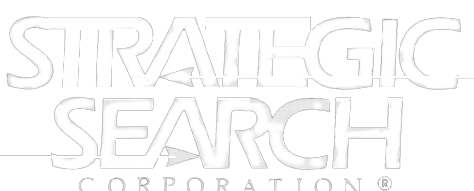
Engineering recruiting is getting tougher by the day for most engineer disciplines. It is particularly true for cutting edge fields such as virtual reality (VR), augmented reality (AR), artificial intelligence (AI), internet of things (IoT) and robotics. Engineers are highly desired in these fields but hardest to find!
This will also necessitate the recruitment of even more engineers in the future. But how can we as a society accomplish this challenge? An article from the recent annual meeting of the World Economic Forum offers some solutions.
Challenges Facing The Engineering Sector
Demand for engineering talent is growing. However, current STEM education programs are not producing enough engineers and other technical talent to meet this need. Other problems the engineering sector must address are also added to this. These include:
• Engineers, scientists, research and development (R&D), information technology (IT) and other technical employees increasingly long for a better work/life balance with more flexibility.
• There is a significant diversity gap within engineering.
• The future demands smarter and more sustainable, resilient and innovative engineering solutions. We will need a new generation of engineers to deliver them.
• The skills challenges include training an interdisciplinary workforce, unleashing their imaginations and expertise to solve complex problems, anticipating which innovations will matter, attracting greater diversity and inclusion and working much harder to tell the extraordinary and inspiring stories of our industry.
• The competition for talent is intensifying coupled with a widening engineering skills gap globally. Many STEM specialists are choosing to work in other sectors such as finance and IT.
Four Steps To Creating And Recruiting Future Engineers
As a result, these are the four steps the World Economic Forum offers to help the engineering industry address these trends and create more engineers in the future:
1. Inspire the next generation
By 2025, Millennials – individuals born between 1980 and 1996 – will comprise three-quarters of the global workforce. Young professionals from Generation Z – those born from 1997 and onward – are just now entering the workplace.
Change is part of the wiring of these great disrupters. It is what they expect. They admire companies equipped to compete in the Fourth Industrial Revolution era and are also committed to challenging the status quo.
They’re looking for a career with a strong sense of duty and purpose. Engineering can give them these since it delivers the promise of a better world. Yet, as suggested in studies by the World Economic Forum and others, engineering and STEM-driven industries aren’t seen as the most open or accessible career choices for a lot of people.
Therefore, the engineering field needs to tell its story better. This must include making the tale human, impactful and authentic. Examples must be included so people can relate to their lives and communicate it more widely.
Typically, engineering tends to make headlines only when something goes wrong. We can challenge existing views by promoting the positive economic, environmental and social impacts of smart engineering. This will be especially impactful when broadcast across social media, ther messenger of choice.
2. Be bold, be brave, be honest
The people who tell the engineering story matter. Engineering’s next-generation workforce sees diversity as a core component for any forward-thinking organization. Therefore define the concept more broadly to encompass tolerance, inclusiveness and belonging. Include respect and acknowledgment of individuals as well as different ideas and ways of thinking.
The global engineering sector is still experiencing a significant diversity gap despite initiatives to increase diversity and inclusion within engineering and STEM-related fields. It’s time to push harder and think more radically to achieve the necessary progress required much more quickly.
We must challenge the sexist and outdated assumptions that still work to limit the ambitions of young people from more diverse backgrounds. We must draw on new faces and voices, people who can speak with authority and authenticity, and engage those whom we’re currently failing to reach.
We need to be bold, providing gender-blind application processes, flexible working initiatives and reverse mentoring. We must tie reward packages to diversity results. If we want things to change, we can’t shy away from discussing these issues openly and together, revealing and addressing the unconscious biases that prevent fundamental change.
3. Be flexible
It’s always a gamble to make predictions, with new technologies, industries and job roles emerging all the time. However, we do know some of the biggest, emerging trends set to reshape our working lives.
We’re already living and working longer than ever before. In The 100-Year Life, Gratton and Scott argue that future generations will experience multi-stage lives and look to their employers to help them seize new roles and opportunities at different ages.
In response, our industry must offer more dynamic and less linear career models. They must create new, flexible routes to different projects, functions and disciplines, supply chains and sectors. Leadership and management practices will also need to become more fluid, evolving and changing with the development of each new project and team.
The demographic shift is making our workplaces more multi-generational. “All of whom,” PwC’s NextGen study states, “aspire to a new workplace paradigm that places higher priority on work/life balance and workplace flexibility.”
For some, this marks the end of the traditional “working day”. Tech-empowered employees are pushing to shift their hours and work to the times best suited to their own approach and lives. They want to transition to a more community-based, shared workspace environment where employees can drop in and use as needed.
4. Value and support your people
The automation of routine tasks in engineering and other industries poses the question, what will humans do? Luckily, people will still matter as the very human skills of critical analysis, strategic thinking, problem-solving, communication and empathy become more valuable.
Improve Your Candidate Interviews With The 1 to 10 Scale
At Strategic Search Corporation our engineering recruiting team offers 12 other recruitment solutions. Long ago we realized engineering recruiting is getting more and more difficult! As a result, we regularly consult with staffing managers to make changes in their recruiting efforts to help them fill their engineer and technical job openings more quickly.
One tool we offer our clients is the Twelve Commandments of Recruiting which help streamline the engineering recruiting process. One of these particularly helpful tips is the 1 to 10 rating scale.
Our 2nd Commandment – “1 to 10 rating scale” interview question -helps to streamline your interviewing efforts. Here you ask your job candidates to rank themselves on a scale of 1 to 10 on your key job attributes.
This interview scale starts at 1, which means no job experience in that attribute. Five means average job experience in that attribute and 10 means job mastery of that attribute. You should ask, for example: “On a scale of 1 to 10 how good of a product design engineer are you?”
The benefit of the 1 to 10 rating scale interview question is it forces your job candidates to more precisely identify for you what their actual job skills are. So remember to employ the 1 to 10 rating scale interview question with your key job attributes.
These are just a few of the employment tips we have gathered over 30 years of recruiting experience. These apply universally to a wide range of jobs, not just engineer jobs and engineering hiring. You can apply them to most jobs and employment situations wherever you are having recruitment issues.
My 2nd Commandment recruiting tip will help improve your engineering job recruitment, especially for difficult to fill jobs like AI, AR, VR, robotics and IoT. It will also apply to any other staffing needs where demand outstrips talent supply.
Call me today at 312-944-4000 to discuss how we can assist with your engineering staffing efforts especially in the highly competitive virtual reality, artificial intelligence, robotics and Internet of Things fields. Or click here for my full contact information.



